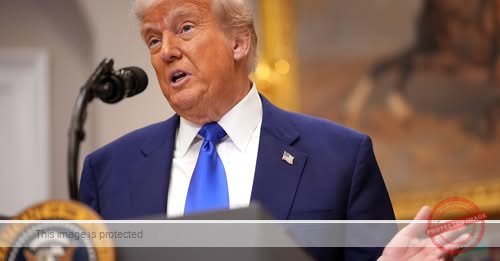Bruce Springsteen vs. Donald Trump: Clash of New Jersey Titans Sparks Fiery Political Battle

Bruce Springsteen and Donald Trump share some surface similarities — both are men in their 70s, with homes in New Jersey, and a strong following among middle-aged and older white American men. They are both leaders in their own right, commanding large constituencies and wielding influence in their respective spheres. But beyond these parallels, their worlds and approaches could not be more different.
Recently, Springsteen stepped onto a British stage and delivered one of his most pointed political statements yet, directly criticizing the Trump administration and calling on Americans to stand up against what he described as authoritarianism and corruption. This public stance from “The Boss” reignited a fierce exchange between him and Trump, who responded with sharp rebukes and even implicated Beyoncé in his latest volley.
During a concert in Manchester, England, Springsteen didn’t mince words: “The America I love, the America I’ve written about that has been a beacon of hope and liberty for 250 years, is currently in the hands of a corrupt, incompetent and treasonous administration.” His call to action urged those who believe in democracy to raise their voices against authoritarianism and let freedom ring. He described the president and his government as “unfit” and “rogue,” disconnected from the core values of being “deeply American.”
Trump’s response was swift and personal, labeling Springsteen a “dried out prune of a rocker” whose skin was “atrophied,” dismissing his music and politics alike. Trump’s social media posts denounced Springsteen as a “pushy, obnoxious jerk” and advised him to “keep his mouth shut until he gets back in the country.” Despite the harsh words, Springsteen remained undeterred, reiterating his critiques in subsequent performances.
Music journalist Alan Light, author of the upcoming “Don’t Stop: Why We (Still) Love Fleetwood Mac’s Rumours,” noted that Springsteen’s political leanings have been consistent for decades. Light praised Springsteen for speaking out at a time when many institutions and individuals might otherwise stay silent. This recent confrontation with Trump is just the latest chapter in a long history of Springsteen’s activism through music and public statements.
Springsteen’s engagement in politics dates back years. He famously questioned former President Ronald Reagan’s interpretation of his song “Born in the USA,” pointing out that the anthem was about the struggles of those left behind economically in the 1980s. Springsteen has had a sometimes rocky relationship with Republican figures from his home state of New Jersey, including former Governor Chris Christie.
During the 2024 presidential campaign, Springsteen campaigned vigorously for Democratic opponents, including Vice President Kamala Harris. In 2020, he described much of America as being “thoroughly hypnotized, brainwashed by a con man from Queens,” an unmistakable reference to Trump. This pointed critique reflects Springsteen’s deep dissatisfaction with the political direction under Trump.
Both men maintain strong New Jersey roots. Trump owns and frequently visits his golf club in Bedminster, while Springsteen resides in Colts Neck. Despite their shared geography, their politics and cultural influence diverge sharply.
Trump is known for targeting high-profile musicians who oppose him, such as Beyoncé and Taylor Swift, but these younger, largely female fanbases don’t overlap much with his core political supporters. Springsteen’s audience tends to be older, often more blue-collar, making their political divide more poignant and personal.
Springsteen’s political engagement is not limited to endorsements. His 1995 album, “The Ghost of Tom Joad,” spotlighted the struggles of marginalized communities, including Mexican and Vietnamese immigrants. His 2001 song “American Skin (41 Shots)” addressed police brutality, recounting the shooting of unarmed immigrant Amadou Diallo. Such songs have sometimes alienated portions of his fanbase but reflect his commitment to social justice themes.
Though some fans wish Springsteen would avoid politics, Light notes that after four decades of political expression, it’s difficult to imagine what his audience expects from the Trump era beyond continued criticism.
While Trump spotlighted Springsteen’s overseas critiques, Springsteen and the E Street Band have not performed in the U.S. since before the 2024 election. Their recent tours focused more on themes of mortality and reflection than explicit politics. Springsteen’s current tour schedule remains primarily European, with no new American dates announced.
This ongoing cultural clash between a music legend and a former president encapsulates the broader polarization in American society. Springsteen’s voice continues to serve as a call for unity and conscience among his listeners, while Trump’s responses reflect his combative approach to dissent and criticism.
The confrontation reminds us of the power of art in political discourse and the enduring impact of public figures who dare to speak out. It’s a clash not just of personalities but of visions for America’s future, played out on stages, social media, and the national conversation.
In a time marked by deep divisions, the exchange between Springsteen and Trump underscores the challenges and necessity of engagement, dialogue, and activism in shaping the country’s path forward.
The post Bruce Springsteen vs. Donald Trump: Clash of New Jersey Titans Sparks Fiery Political Battle first appeared on Trusted and Verified USA News.
